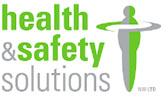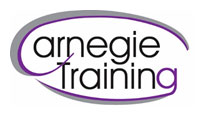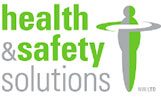- Keep everyone safe in school
- Reduce restraints
- Reduce Exclusions
- Provide a positive learning environment through Restorative Practices


What is challenging behaviour?
In safe schools we refer to challenging behaviour as a term to describe student behaviour that can result in harm. It describes behaviour such as – violence, aggression, swearing, disruption, absconding, drugs, alcohol, smoking, persistent lateness and absenteeism, It also covers the breaking of basic school rules such as non-uniform or bringing forbidden items into school.
What can Safe Schools do for your school?
At times schools can be extremely challenging and staff need to plan for and manage this behaviour. Safe schools provide training and systems to furnish the staff and Senior Leadership Teams with the skills to manage challenging behaviour. These skills include:
- Understanding behaviour
- Communication
- De-escalation
- Restrictive and Non-restrictive Physical Interventions
What do the government mean by the term Reasonable Force?
The use of reasonable force in schools can be a minefield for teachers and SLT. Safe Schools make this simple by explaining the law and how it applies in your school, with your staff and your pupils. Staff will learn simple techniques to maintain the safety of everyone in the school community in the context of Last Resort
How will restorative practice benefit our school?
Attendance and punctuality are key to students learning. Restorative practices will improve relationships among learners and staff which will promote a positive and respectful culture where students will enjoy school and learning. They will become more positive in their attitude to their education in the knowledge that they will always be listened to and the consequences to poor behaviour will be fair and agreed by staff and learner alike. Restorative practice promotes the fundamental British values of respect, responsibility, appreciation of diversity and helps learners to become active citizens within their school community.
Safe Schools – Stages of a Behaviour Incident
(Based on Kaplan and Wheeler 1983)
- Understanding Behaviour
- Communication
- De-escalation and Re-regulation
- Restrictive and Non restrictive Physical Intervention
- Restorative Practice
1: Understanding Behaviour: (approx. 3hrs flexible learning)
Staff will learn about their psychological responses to challenging behaviour, the needs and wants of all students, the reasons why behaviour can escalate and how to plan for and manage it, thus empowering staff to have high expectations for learners behaviour and conduct.
Planning –
- Individual Behaviour plans – to help students to re-regulate their behaviour.
- ABC Charting – to share good practice, identify triggers and patterns of behaviour, provide consistency and support each other.
- Behaviour For Learning targets – Differentiation in lessons which will identify behavioural needs of each individual student and a system which will evidence their progress towards achieving the high expectations of behaviour and conduct set by the school.
2. Communication: (approx. 90 minutes)
Staff will learn how to effectively communicate with students and realise the impact of body language, tone of voice and facial expressions on students through an understanding of Betaris Box (Behaviour Cycle)
3. De- Escalation and re-regulation: (approx. 90 minutes)
- De-escalation techniques for use in the school environment.
- Classroom management and dynamic risk assessing.
- Forms and language of aggression
- Re-regulating behaviour using individual plans and ABC charting
4. Safeholding and Disengagement: (approx. 3hrs flexible learning)
Staff will learn about The Law and the use of reasonable force in schools. Breaking up fights, Safeholding and breakaway techniques for use in schools to keep everyone safe.
- The Human rights Act
- Lawful Excuse
- The education Act
- Health and Safety at Work, Manual Handling and the Leming Report
- Guidance for Head teachers and the Power to Search.
5. Restorative Practice: (approx. 3hrs flexible learning)
Staff will learn the skills required to provide a restorative learning environment within the school community. Staff and pupils will take responsibility for their actions, be accountable for their behaviours, understand the impact of their behaviour on the wider school community and repair the harm done. This allows closure to incidents and provides a way to move forward which supports learners and staff. It helps learners to develop their character by being resilient, confident and independent and improves the mental wellbeing of the whole school community.
Training and advice for SLT:
Under the new OFSTED framework schools will be judged on:
- Quality of Education
- Behaviour and attitudes
- Personal development
- Leadership and management
Safe Schools can assist SLT with the following documentation which will help to evidence the schools commitment to achieving these targets and also show the impact of the training, policies and procedures on staff and on learners.
- Behaviour Policy
- Attendance Policy
- School development Plan
- Governors Reports
- Behaviour for Learning Systems
- Tracking improvements in behaviour
- Restorative Practice interviews
- Rewards and Sanctions
- Behaviour walks
